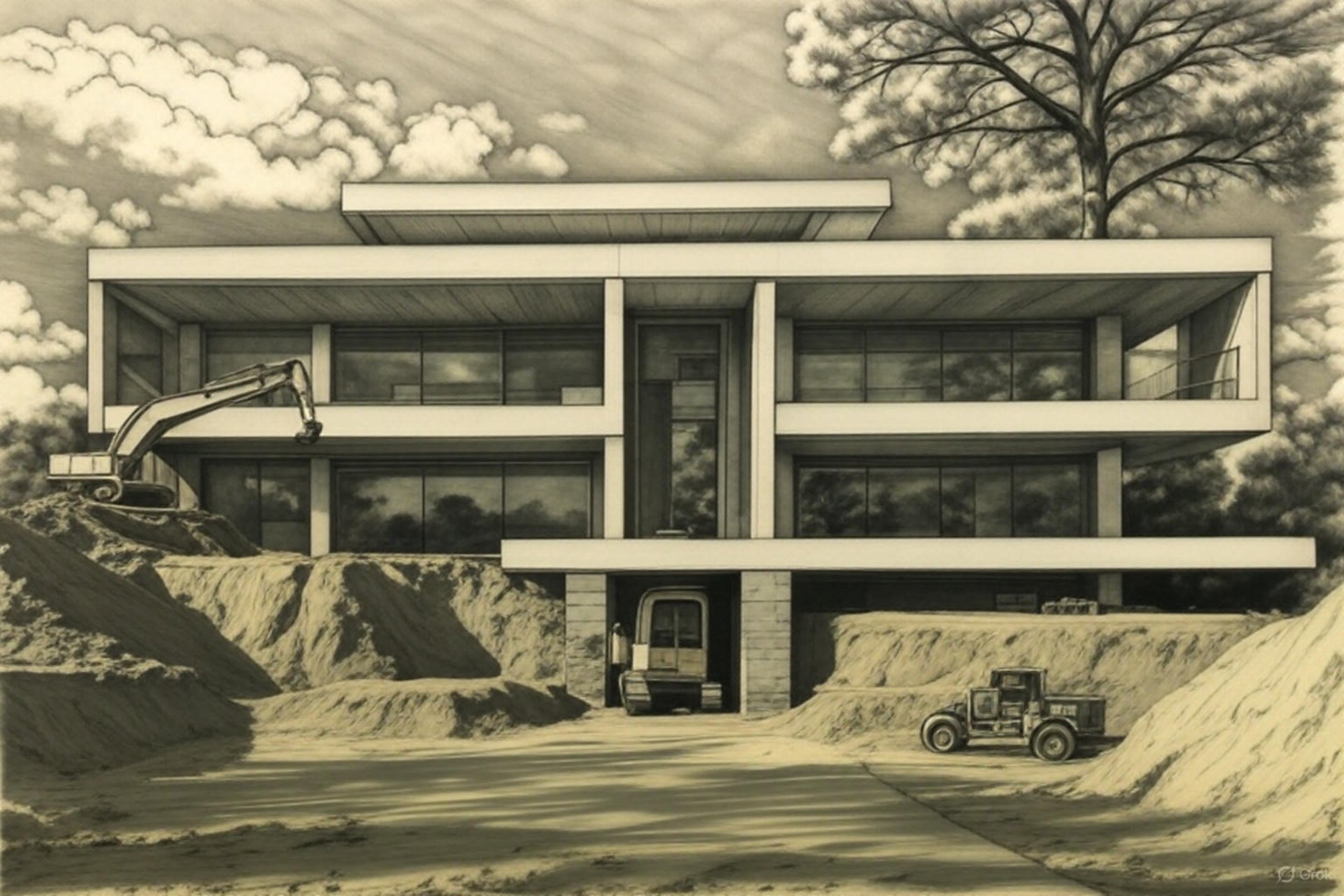The 10 Most Common Hidden Defects in an Apartment — And How to Spot Them in 5 Minutes
Before buying or renting an apartment, there are 10 hidden defects that reveal the true condition of the property — and most of them can be identified within just five minutes. Here is the professional quick-inspection guide used by developers and expert buyers.
BUYING PROPERTY IN GREECE
Christos Boubalos - poli.gr
11/22/2025

1. Small cracks in wall corners
What they indicate:
plaster shrinkage,
old settlement movement,
low-quality finishing,
rarely, deeper structural tension.
How to spot it in seconds:
Check the corners and around windows/doors.
Hairline cracks are normal.
Wider, darkened or expanding cracks → warning.
2. Bubbling or swelling at the base of walls — rising damp
What it means:
moisture coming from the floor slab,
poor waterproofing,
leaks from communal areas.
What to look for:
Lines, bubbles, peeling paint, or swollen plaster near the floor.
3. A hollow sound when tapping the wall
What it reveals:
poor masonry,
lack of density,
minimal acoustic insulation.
How to test:
Tap the wall gently in 4–5 spots.
If the sound is hollow, the wall lacks mass → internal noise will travel easily.
4. Gaps or air leaks around windows
What they mean:
poor installation,
thermal loss,
future moisture issues,
higher heating/cooling costs.
Quick test:
Run your hand around the window frame.
If you feel air → the installation is flawed.
5. Mold spots on ceilings and bathrooms
Caused by:
insufficient ventilation,
thermal bridging,
water penetration from above,
moisture trapped in old construction.
Where to check:
corners of ceilings,
above the shower,
near ventilation ducts.
Even a tiny black dot can reveal a deeper humidity issue.
6. Tiles that “click” or move slightly under pressure
What it indicates:
poor adhesion,
water underneath,
potential for future detachment.
Test:
Walk slowly across bathroom/kitchen tiles.
If you hear “tick-tick”, the substrate isn’t solid.
7. Damp or “closed” smell upon entering
What it reveals:
hidden moisture,
old leaks,
insufficient airflow,
degraded insulation.
A home should smell neutral.
Moisture smell = guaranteed issue.
8. Noise from upstairs or adjacent walls
What it means:
thin partitions,
no acoustic insulation,
poor slab design.
How to test in 30 seconds:
Ask for a moment of silence.
If you hear conversations, footsteps, plumbing or TV noise → low acoustic comfort.
9. Temperature differences between rooms
What this indicates:
heat loss,
weak insulation,
thermal bridges,
low-performance windows.
Test:
Move from living room to bedrooms.
A noticeable temperature shift means energy inefficiency.
10. Weak water pressure — the invisible red flag
What it means:
clogged pipes,
old plumbing network,
poor pressure pump setup,
installation defects.
Quick test:
Turn on the kitchen faucet and bathroom faucet simultaneously.
If pressure drops → there's a plumbing issue.
How Professionals Check an Apartment in 5 Minutes
1) The Sound Test
Tap walls, floors, doors — sound reveals density and construction quality.
2) The Light Test
Open shutters or curtains — observe natural light, shadows, and opposite building distance.
3) The Air & Moisture Test
A simple smell test can reveal hidden humidity within two seconds.
These reveal 80% of the property’s condition instantly.
Why These Defects Matter for Real Value
Hidden defects directly affect:
resale value,
rental performance,
maintenance cost,
structural longevity,
tenant satisfaction.
A property with moisture, noise, weak pressure or hollow walls:
deteriorates faster,
rents slower,
costs more over time,
loses long-term value.
Real Example: The Tymfristou Project by Poli Real Estate
Poli Real Estate evaluates every property using this exact professional checklist.
At the Tymfristou development in Marousi:
wall density is reinforced,
premium windows eliminate air leaks,
acoustic tests are conducted per room,
plumbing pressure is benchmarked,
humidity control and insulation are double-checked,
temperature stability is ensured,
anti-vibration materials are used in floors,
a full quality inspection occurs before delivery.
This is why boutique developments like Tymfristou hold their value and maintain exceptionally high demand.
Conclusion
Most hidden defects are easy to detect — if you know what to look for.
Remember:
✔ square meters don’t reveal true quality
✔ hidden flaws are the most expensive
✔ 5 minutes of inspection can save thousands
✔ noise, moisture, and installation quality define long-term comfort
If you want a professional evaluation of a property — or guidance on high-quality new developments — Poli Real Estate can assist you with expert-level assessments and transparent reporting.
Brokerage
Contact
info@poli.gr
+30-6972-666688
+30-6972-885885
© 2025 Poli Real Estate. All rights reserved.
